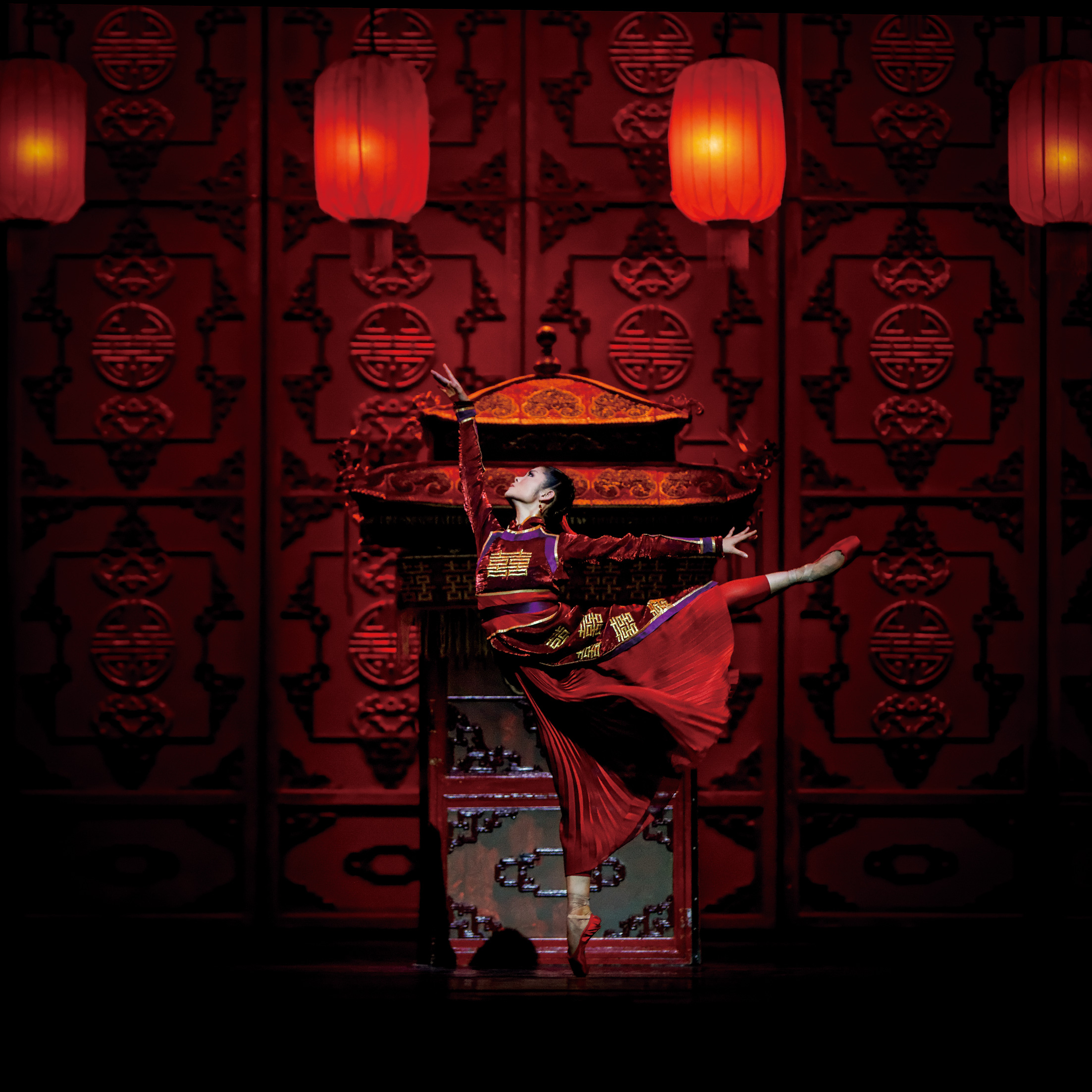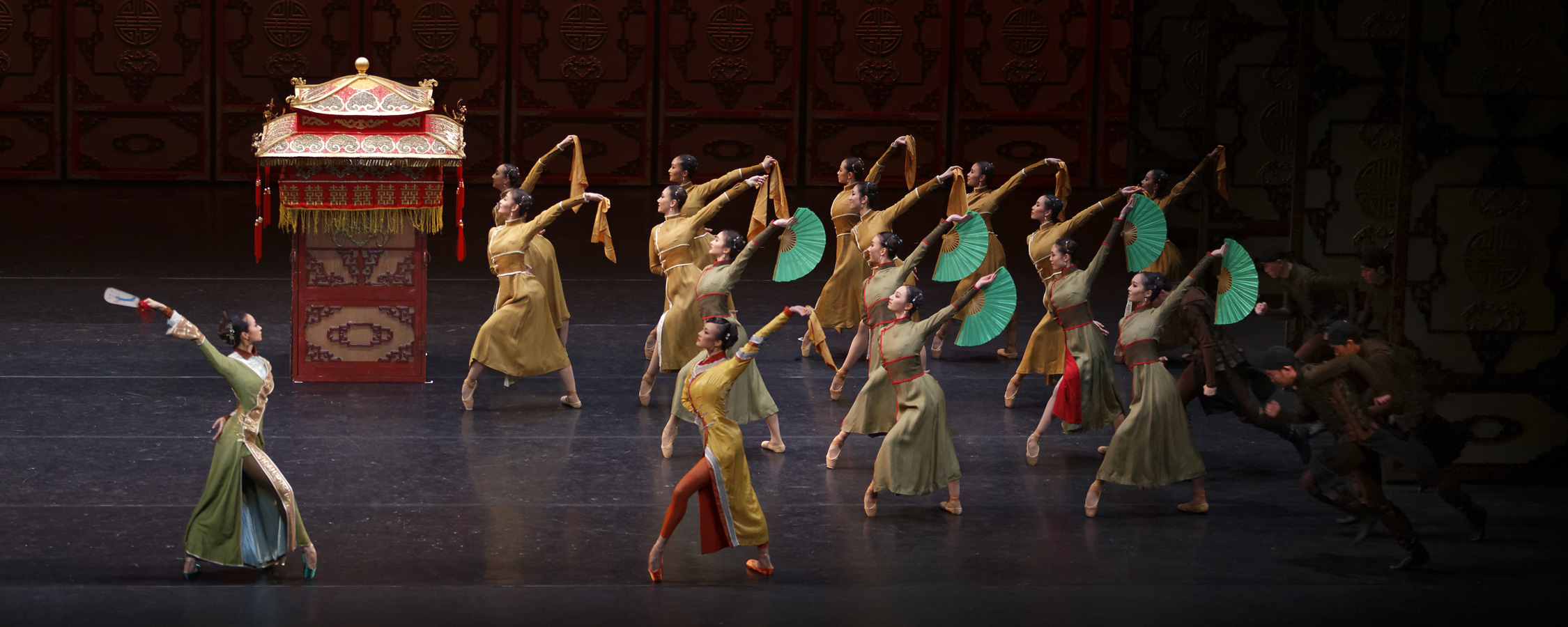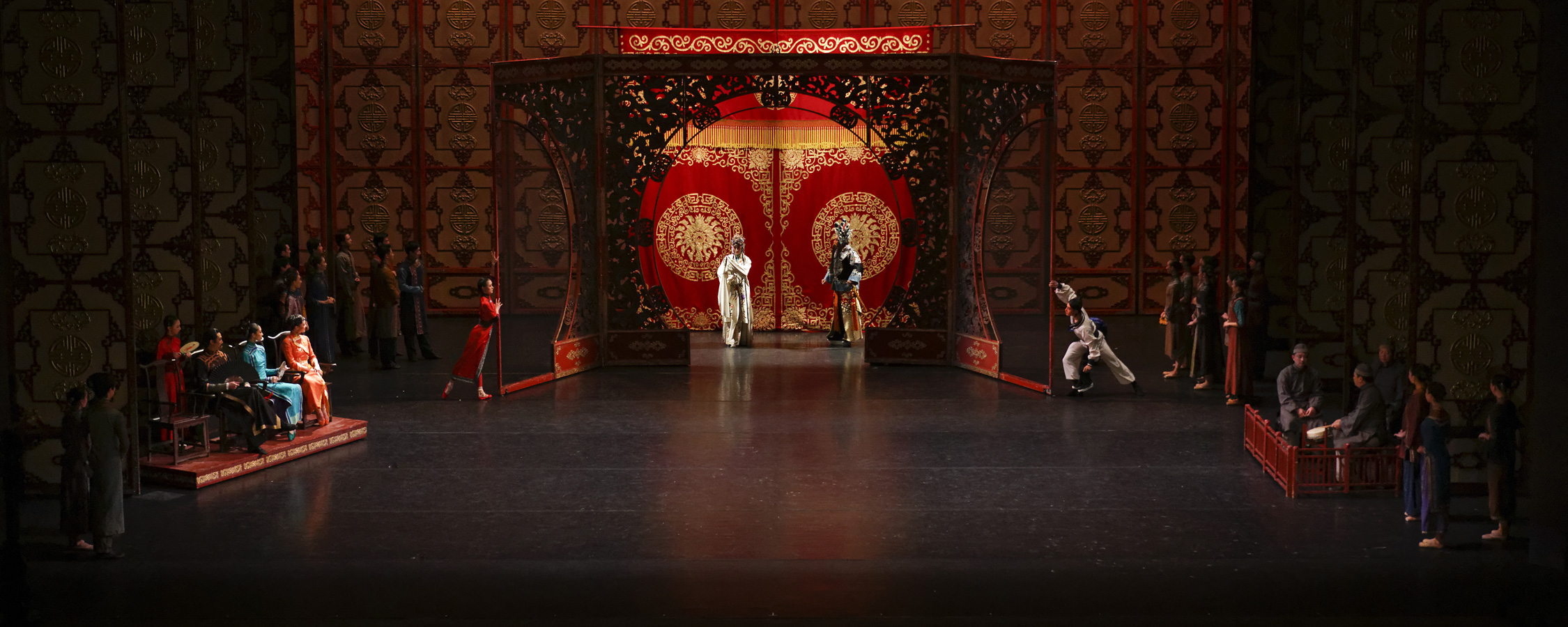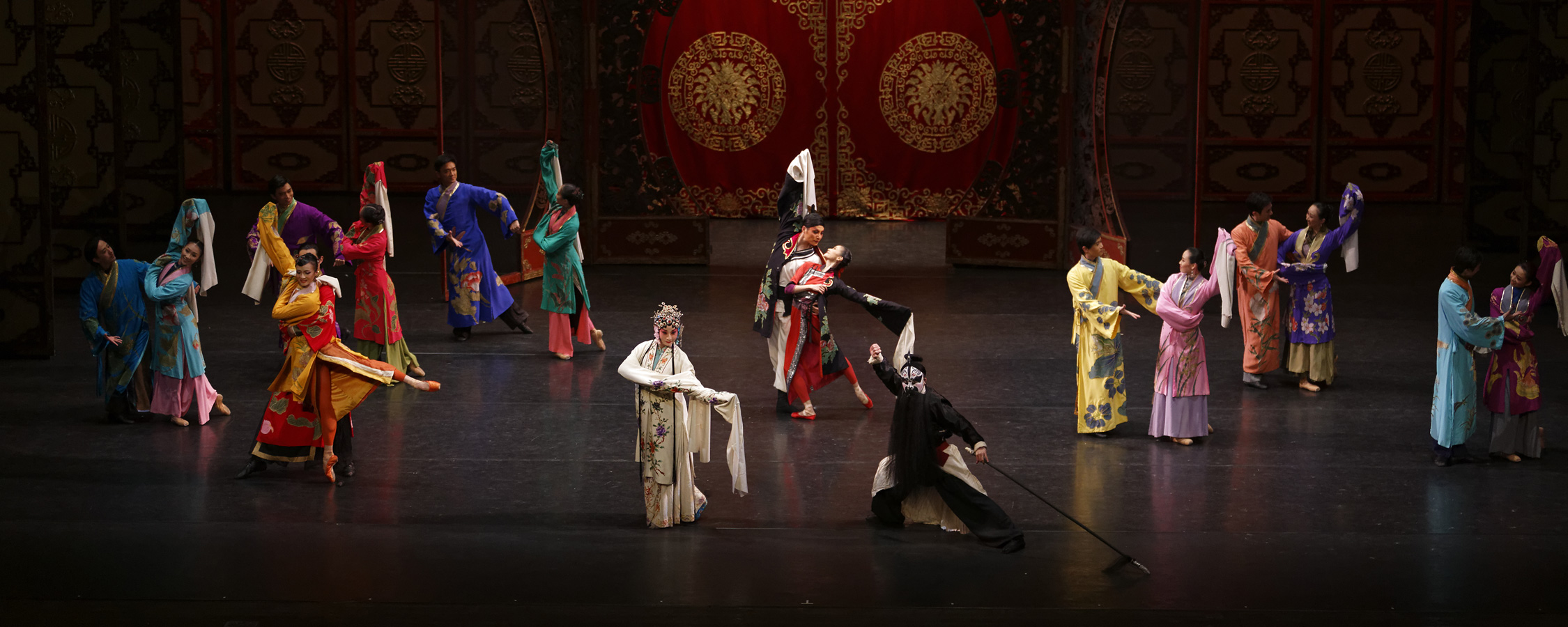Presented by: Embassy of the People's Republic of China in the Republic of Indonesia Association of Indonesia-China Economic, Social and Cultural Cooperation
Founded in 1959, the National Ballet of China, as the only national ballet group and one of the top arts companies in China, serves as that country's envoy for promoting cultural exchange.
Combining western ballet with Chinese culture, the company has created many famous Chinese ballet classics over the years, winning a worldwide reputation and popularity.
In 2004, together with Merce Cunningham Dance Company and Bolshoi Ballet, the company won the nomination for Best Foreign Dance at the UK's National Dance Awards for its excellent performance of Raise the Red Lantern.
This world-famous ballet will come to Jakarta on Nov. 2 to 3 at 7 p.m. to coincide with the celebration of 67 years of diplomatic ties between Indonesia and China.
Sponsored by the Embassy of China and the Association of Indonesia-China Economic, Social and Cultural Cooperation, Raise the Red Lantern will be performed at the Ciputra Artpreneur Theater in South Jakarta. The play will involve 101 dancers, opera singers, musicians and stage crew.
Tickets are by invitation only. "We don’t sell tickets and instead will distribute invitations to selected institutions. We will also invite dance students as well as children with disabilities to watch the practice and rehearsal sessions during the two days,” organizing committee chairman Paiman Mak said, as quoted by The Jakarta Post.
Raise the Red Lantern

The ballet Raise the Red Lantern was created and premiered in 2001. Lead by the ballet company's former director, Zhao Ruheng, the company invited a diverse group of world-renowned artists to work on this ambitious stage performance, including Chinese film director Zhang Yimou, French composer Qigang Chene, German choreographer Xinpeng Wang and Wang Yuanyuan, stage designer Zeng Li and French costume designer Jérôme Kaplan.
This international creative team conceived and produced this modern ballet, which fuses cinema, shadow play, Peking opera and all sorts of Chinese cultural elements with the vocabulary of western ballet.
Raise the Red Lantern puts itself apart from other ballets by being a diverse creation with dramatic force and a strong visual impact.
During the company's tour in Brazil, presenter Madam Myrian Dauelsberg said: “After 8 years, I finally bring the 'Red Lanterns' to Brazil. This is a remarkable piece worth promoting in the ballet world.”

Raise the Red Lantern represented a new type of experiment and a fresh model of collaboration in the company's 50-year history. It gave the company's members the precious experience necessary for further creative works. Since its premiere, the ballet has been presented all over the world in more than 400 performances. It was selected in China's “National Program for Excellent Stage Art” and has established itself as an internationally-acclaimed Chinese ballet.
The National Ballet of China will continue its efforts to produce Chinese classics that fuse east and west for the years to come.
A Ballet in Three Acts

Based on Su Tong’s novel Wives and Concubines and adapted from Zhang Yimou’s movie of the same name, Raise the Red Lantern is a ballet in three acts.
Zhang Yimou returns to the play as librettist, director and artistic director. Produced by Zhao Ruheng, it premiered at Tianqiao Theater on May 2, 2001, with guest performances by the China National Peking Opera Company.
Its prologue starts it off in 1920s China. In a quiet courtyard, a young girl is forced into a bridal palanquin. She is going to be the second concubine of the master of the house. Before getting into the palanquin, she remembers her childhood lover—a young actor from a Peking Opera group.
In the happy and joyful atmosphere of the wedding, the wife and the first concubine welcome the second concubine of the master of the house into the family, albeit with complex emotional undertones. During the wedding night, despite her desperate resistance, the bride is finally overcome by her tragic destiny.
The master passes time with his wives by watching Peking Operas and playing mahjong. The second concubine sneaks out for a while to meet her former lover. But their secret is discovered by the first concubine, who has ulterior motives.

The two lovers continue their love affair in secret. The first concubine tells the master about their affair. The master catches the two lovers who bravely confess without hesitation. The first concubine tries to use this occasion to renew her favor of the master.
However, instead of that, she receives a heavy slap on the face from the master, who is beyond himself. Driven by depression, she grabs a lighting stick, which symbolized the master’s power over his household and lights all the red lanterns hanging in her yard. In great fury, the master orders his minions to execute the first concubine for daring to break his house law.
In the epilogue, the two lovers and the first concubine are taken to the execution ground. Facing death, they forget their hostilities, and reconcile with each other. In tolerance and affection, they embrace together. Feudalism strangles their young lives and beautiful love.
About Zhang Yimou
Born in Xi’an in November 1951, Zhang Yimou is an internationally-acclaimed Chinese filmmaker, cinematographer and actor. He has won countless awards throughout his career.
In 1984, his work Yellow Earth received Best Cinematography at the 5th China Golden Cock Award. He was an actor in Old Well, which won him Best Actor at the 1st Tokyo International Film Festival in 1986. In 1987, his directorial debut, Red Sorghum, won the Golden Bear at the 38th International Film Festival of West Berlin.
In 1990, Ju Dou received the Louis Benuel Special Prize at the Cannes Film Festival and was nominated for Best Foreign Film at the 63rd Academy Awards. Raise the Red Lantern was released to international acclaim in 1991, winning the Grand Prize of the World Film Critics Association at the 44th Venice International Film Festival.
In 1997 Zhang directed Puccini's opera Turandot. As chief director, he successfully directed the Opening and Closing Ceremonies for the 29th Olympic Games in Beijing in August 2008.
About the Production Team
Qigang Chen's music has been performed around the world over the past three decades, winning him many accolades. In 2005, he was awarded the Grand Prix de la Musique Symphonique by SACEM in recognition of his career achievements.
He worked as music director of the Opening Ceremony of the 2008 Olympic Games in Beijing. In 2012, Chen was awarded the Rossini Award by the Academie des Beaux Arts de l'Institut de France. Most recently, in 2013, he was decorated with Chevalier de l'Ordre des Arts et des Lettres by the French government.
Xinpeng Wang has been engaged as a choreographer worldwide since 1996. His works appear in the repertoire of the National Ballet of China and Hong Kong Ballet, the Semperopera in Dresden, Het Nationale Ballett Amsterdam, the Royal Ballet Van Vlaanderen Antwerpen, the National Ballet of Lithuania and the National Ballet Ankara.
He served as director of the Ballett of the Staatstheater Südthüringen in Meiningen, Germany, between 2001 and 2003. After that he went to the Theater of Dortmund, where he has been successfully leading the ballet as a director for more than 12 years. His creations and choreography have been widely appreciated by audiences and critics alike.
Wang Yuanyuan is one of China’s leading modern dance choreographers. Her works have been staged around the globe—in the US, Russia, Korea, France, Bulgaria, Denmark, Singapore, Australia, Greece, the Netherlands, Germany, Italy, Hong Kong, the UK, Colombia and Mexico.
Wang has won Best Choreographer awards at the Varna International Ballet Competition in Bulgaria, the USA International Ballet Competition in Jackson, Mississippi, and the Moscow and Shanghai International Ballet Competitions respectively, making her the most internationally awarded Chinese choreographer to date.


